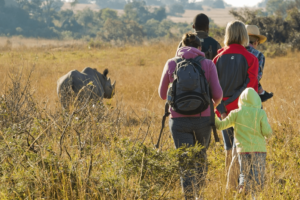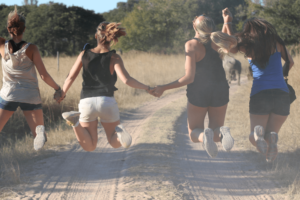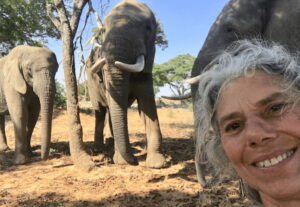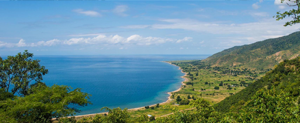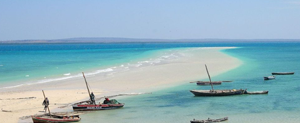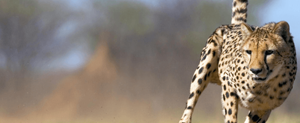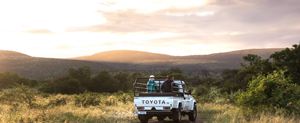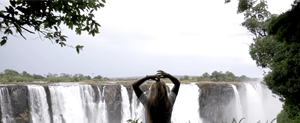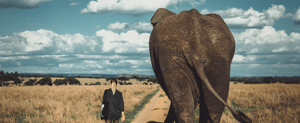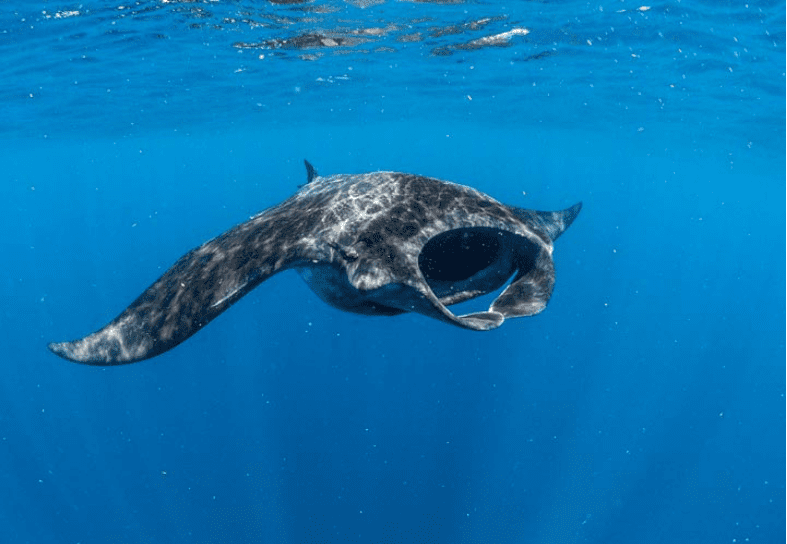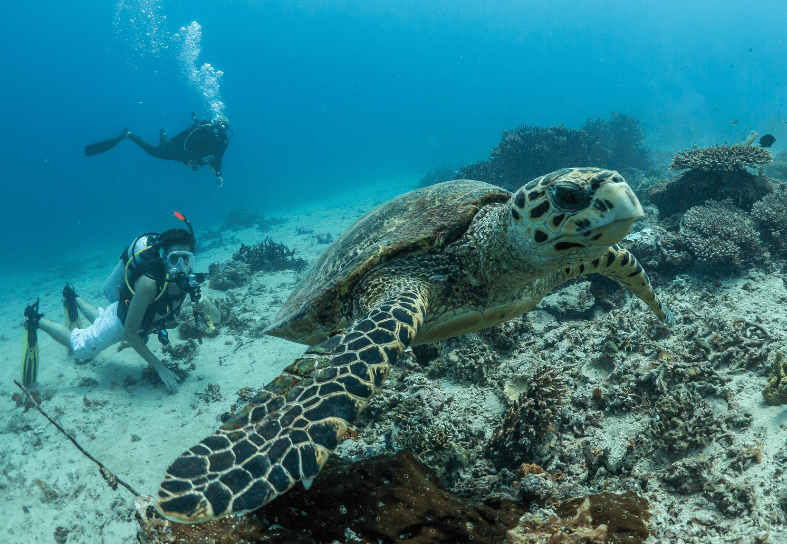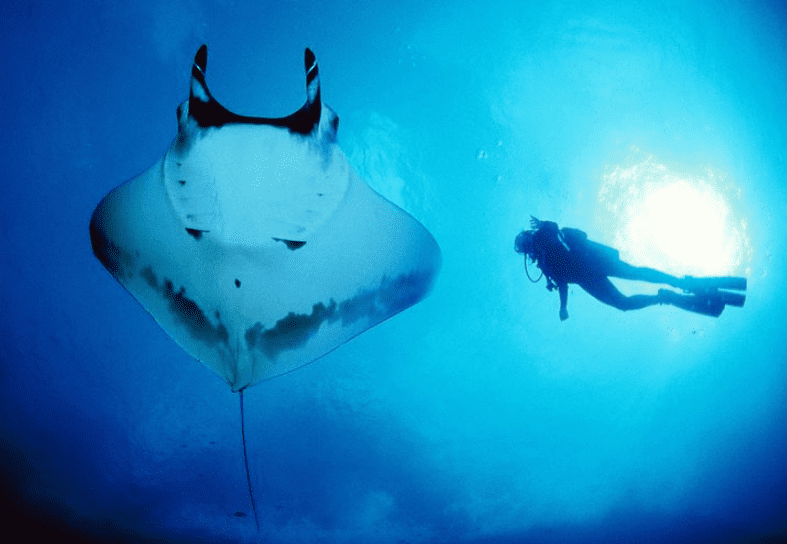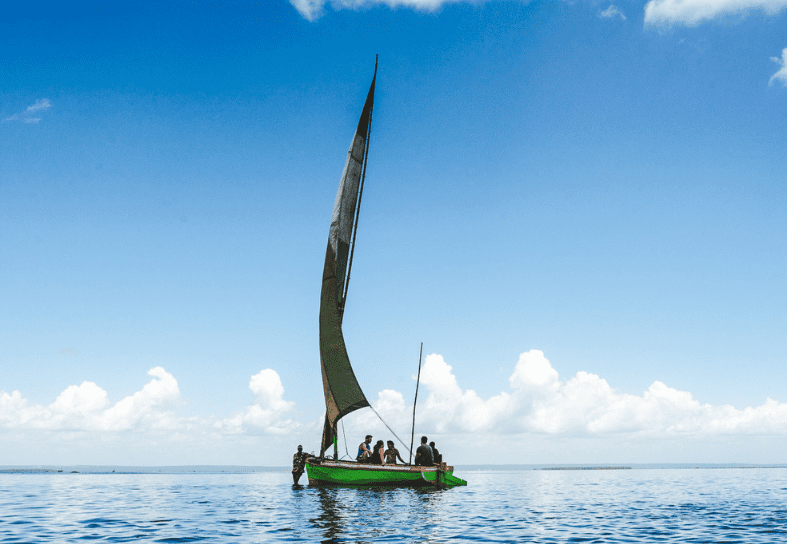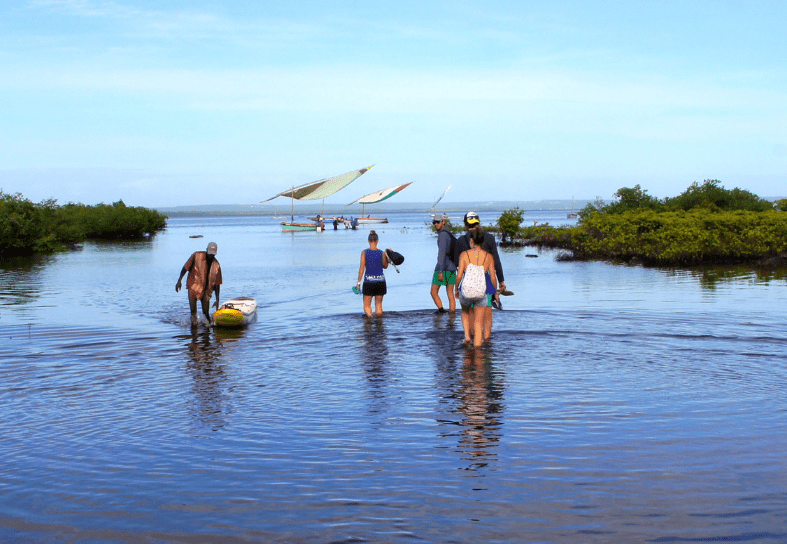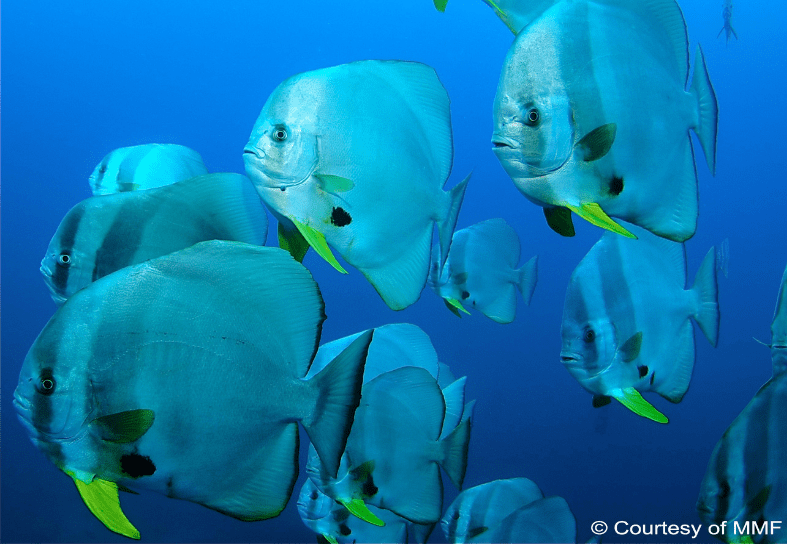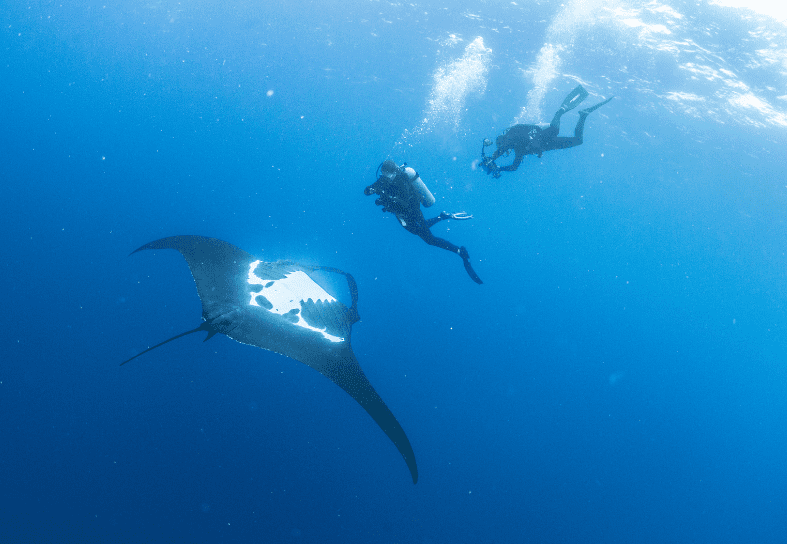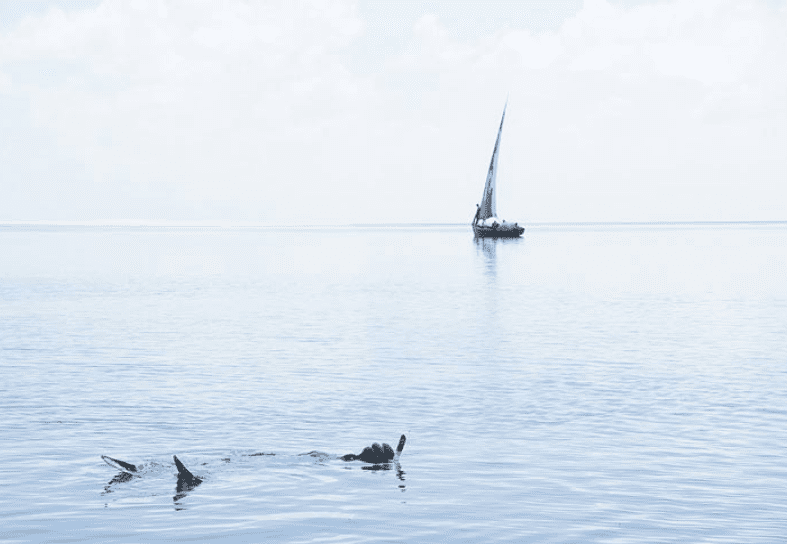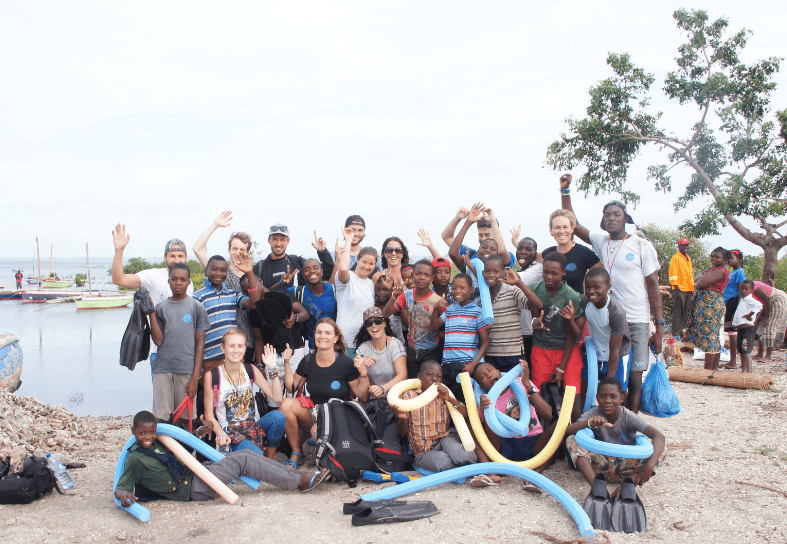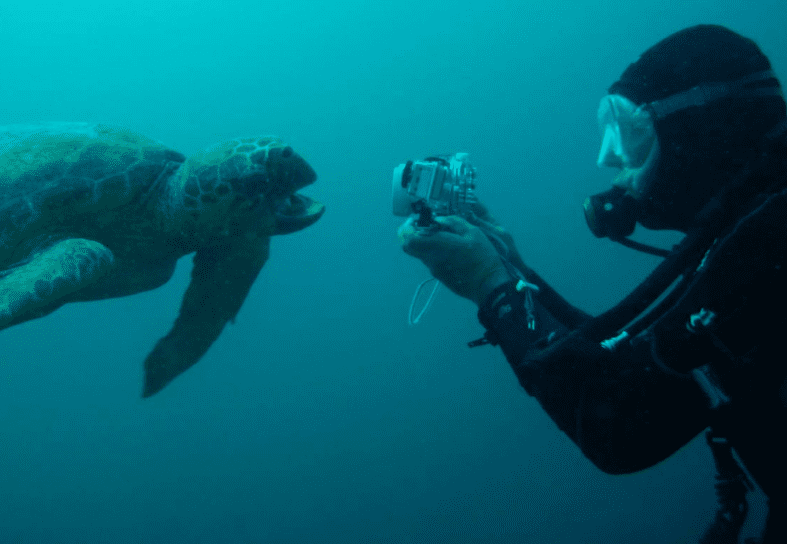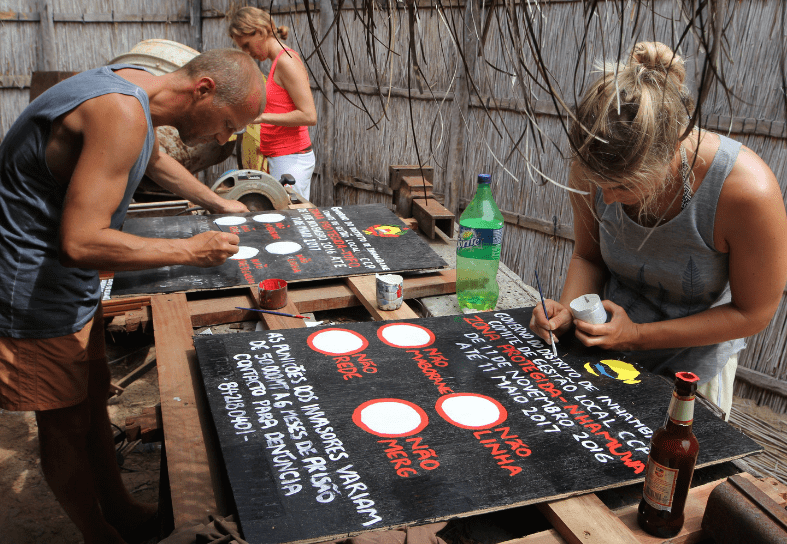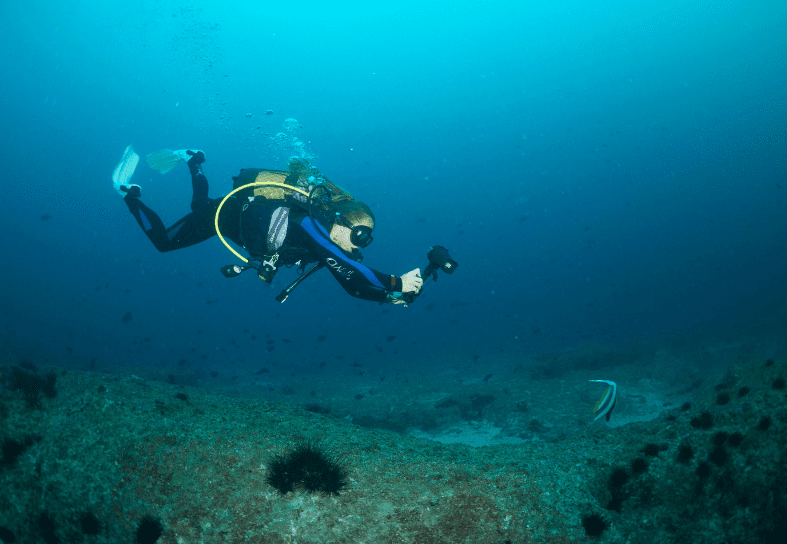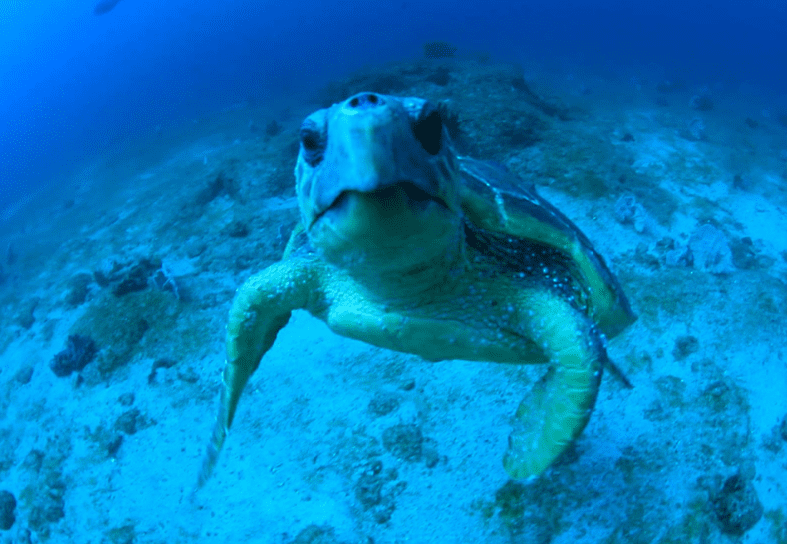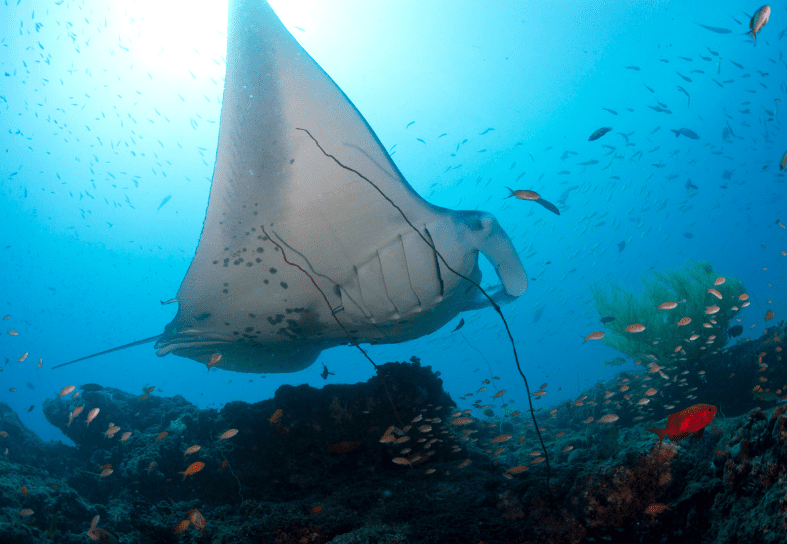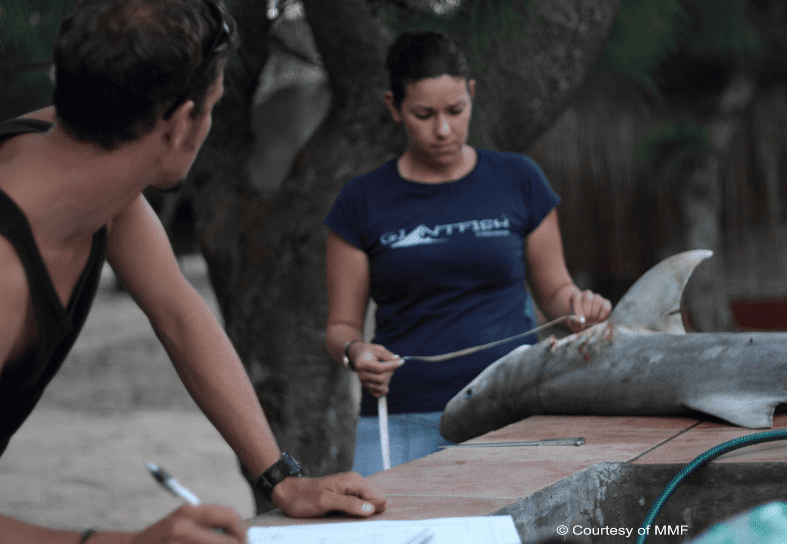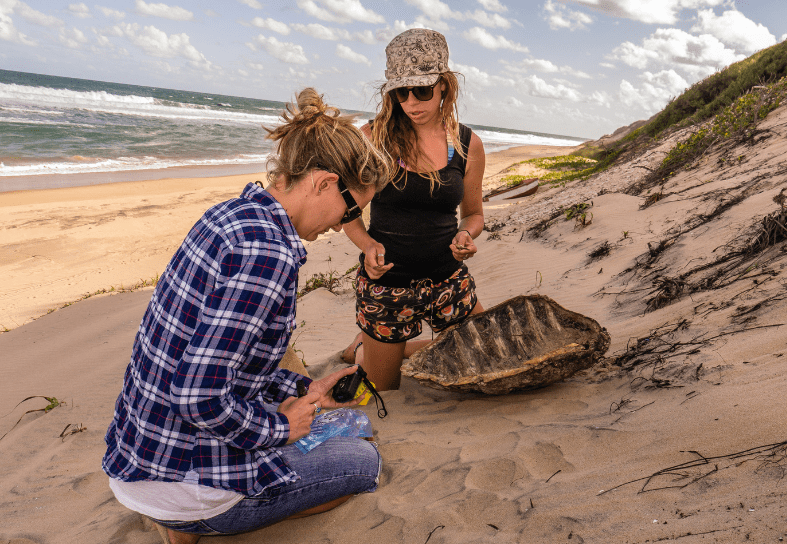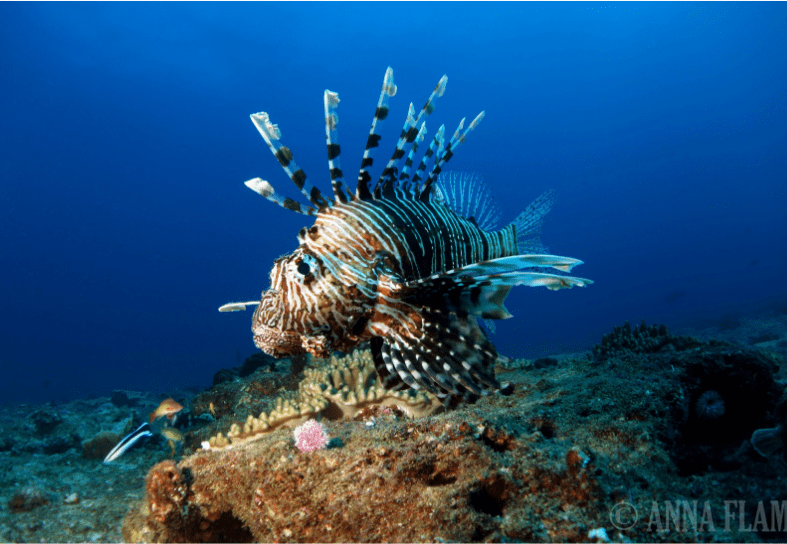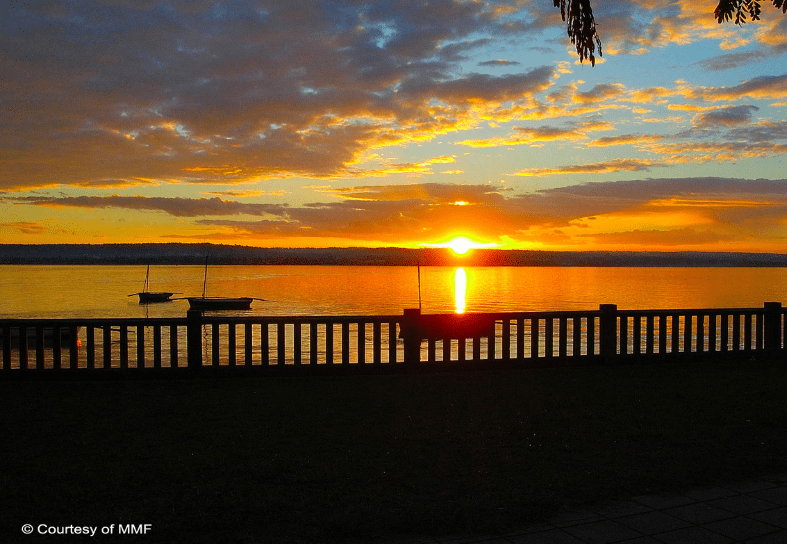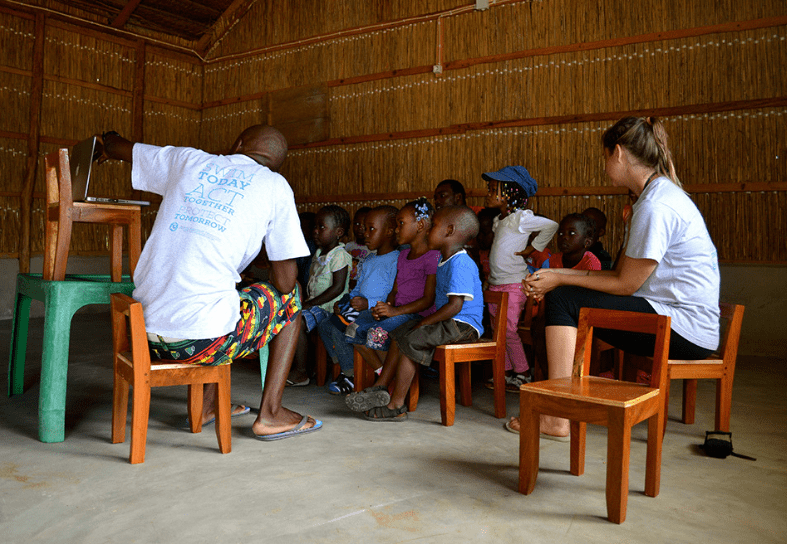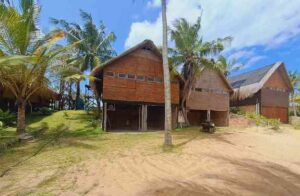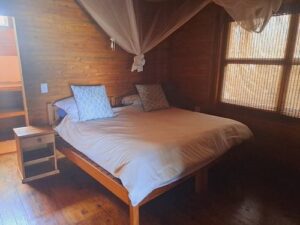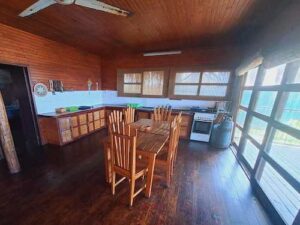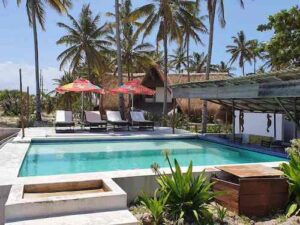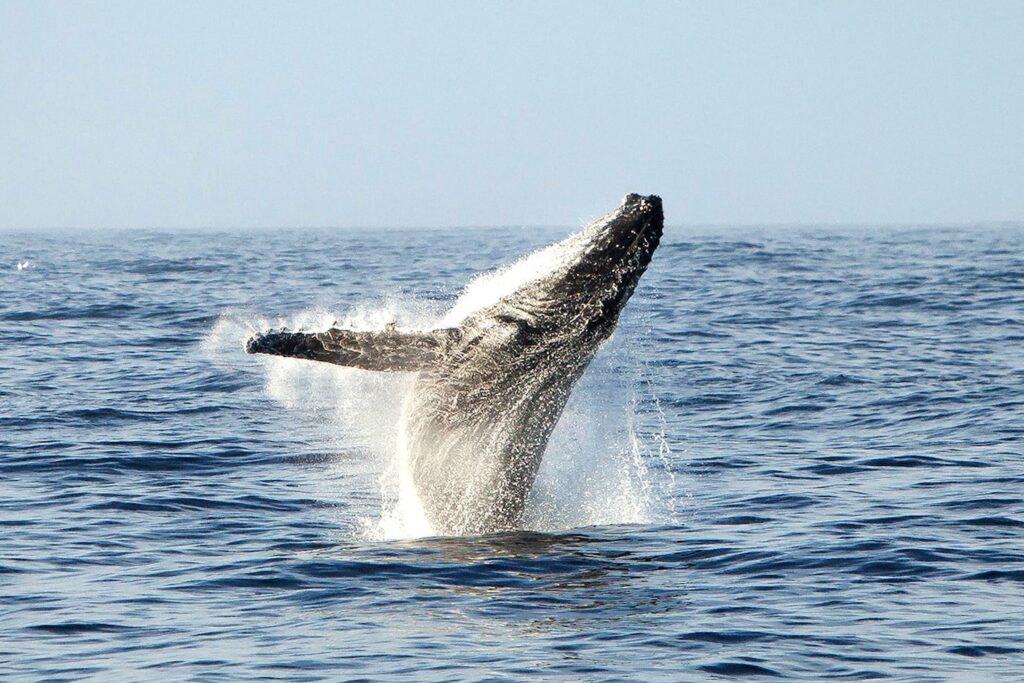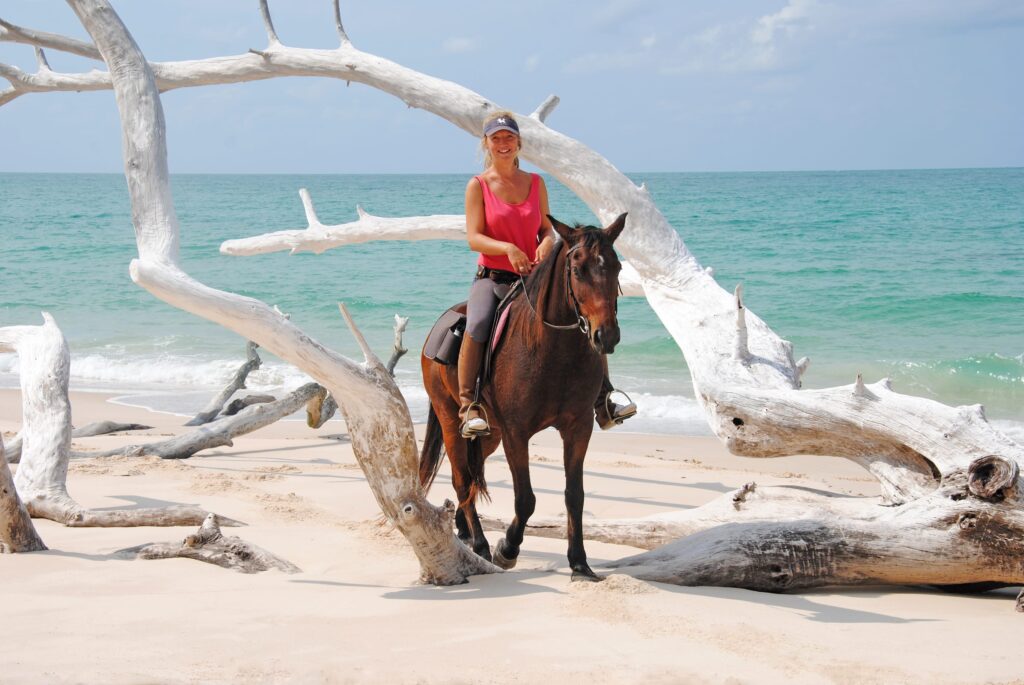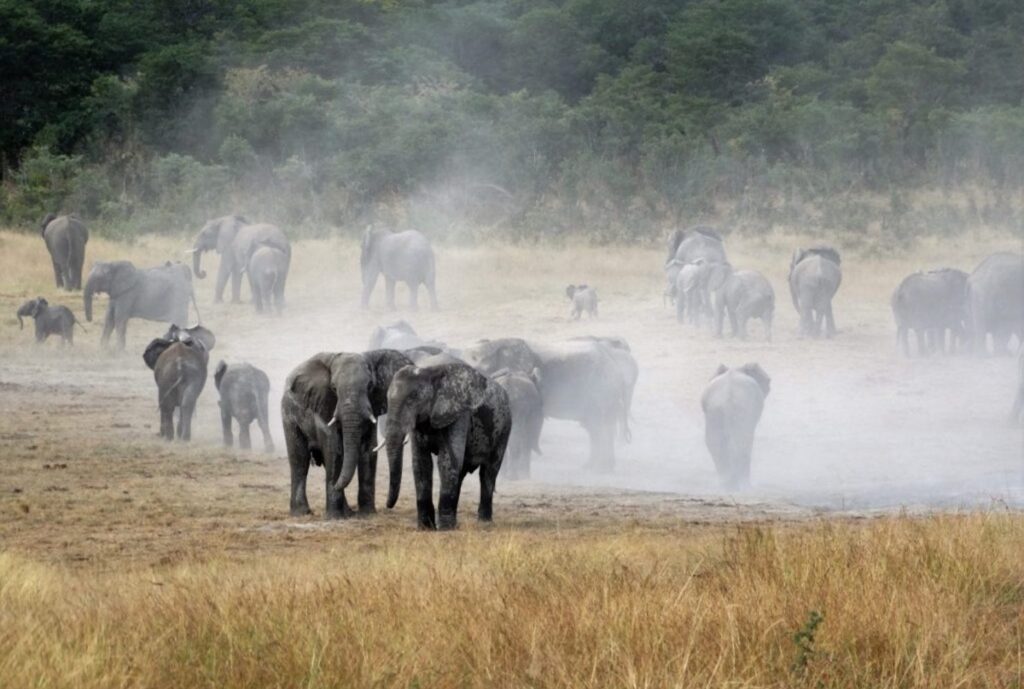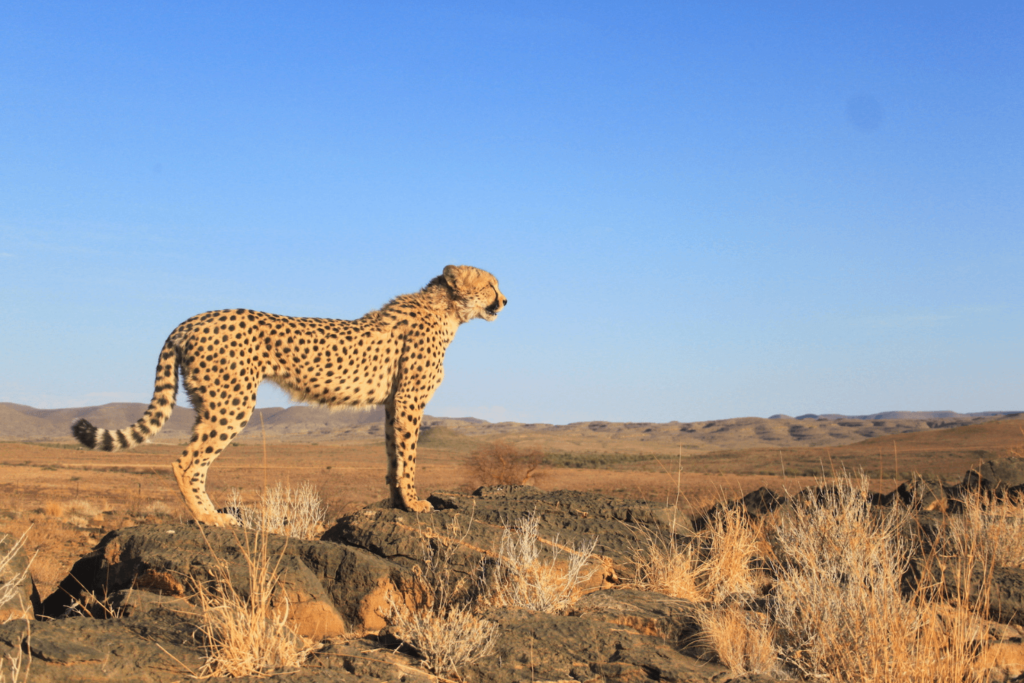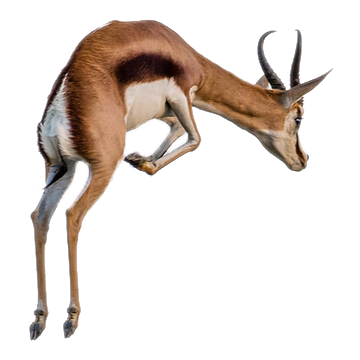Marine Conservation Volunteer Opportunities
MOZAMBIQUE
Mozambique
2 - 12 weeks
Flexible
Max 10 people
Age 17+
From £2,199
Mozambique
2 - 12 weeks
Flexible
Flexible
Max 10 people
Max 10
Age 17+
From £2,199
What's the project about?
Southern Mozambique is one of the world’s top 10 scuba diving locations. The area is home to large populations of whale sharks, manta rays and humpback whales. Our marine conservation volunteering project is focused on the long-term protection of marine megafauna. Marine conservation volunteers take a holistic approach to conservation, gathering data on a range of small and large marine animals, to gain a full understanding of the ocean ecosystem.
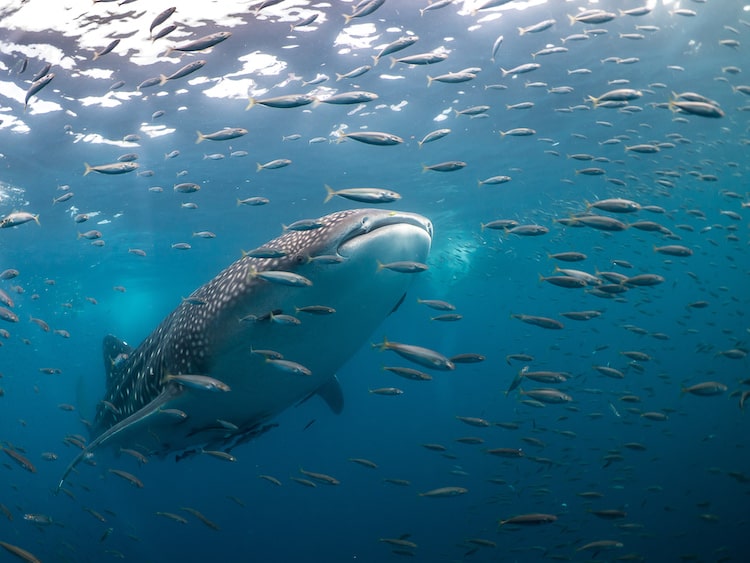
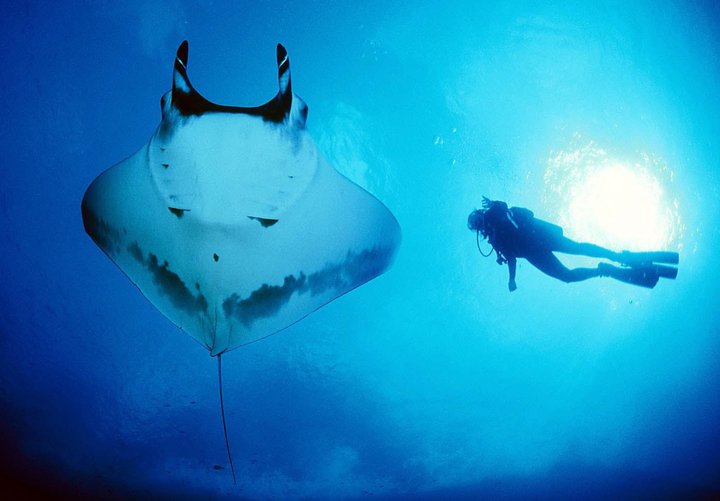
How will I be contributing?
The goal of our marine conservation projects is to consistently gather data on ocean megafauna. Thus ensuring the national whale shark and manta ray databases are kept up-to-date. As an ocean conservation volunteer, you will collect population data, tag and measure animals, monitor environmental conditions, take ID photos and record behaviour. As an ocean conservation volunteer you will also monitor marine habitats such as coral reefs and work in the mangrove forests, plus log dives and analyse camera traps.
What makes this project ethical?
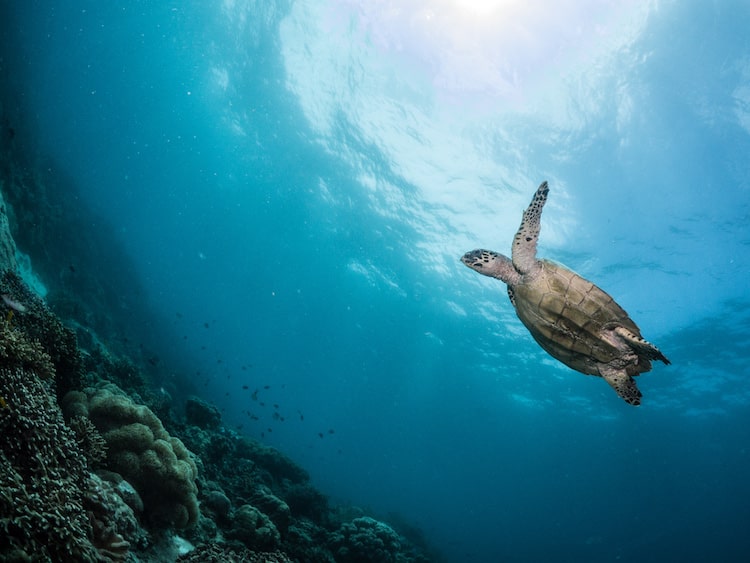
Project showreel
Project gallery
Project information
The objective of the marine conservation volunteer project is to gather as much useful information as possible about ocean creatures and the underwater ecosystem.
With our marine conservation volunteer opportunities, you will learn research techniques from experienced marine biologists, get close to incredible marine creatures, snorkel stunning coral reefs in clear waters and live in a beautiful beachside lodge.
Your activities may depend on the time of year that you volunteer, but rest assured, there is plenty of useful and meaningful work to do year-round.
Diving and snorkelling
During your programme you will usually undertake four research dives or ocean snorkel safaris per week. If you are doing dive training, in your first week you will fit other activities around this training.
– Megafauna marine conservation volunteer opportunities What about Marine conservation volunteer opportunities – Megafauna Research
Focus species: manta ray, whale sharks, sea turtles ( year round)
The Mozambican manta ray database is the second largest in the world, with 800 individuals identified in the area. Tofo is also a global hotspot for the whale shark, the world’s largest fish, and to date more than 600 individuals have been identified in the area. All marine turtle species in Mozambique are endangered, and their nesting grounds have declined rapidly due to poaching.
- Collect field data to assist research and conservation planning
- Take identification photos and monitor behaviour
- Check acoustic listening stations
- Tag animals and collect tissue samples
- Learn to use a dive log to record key information whilst diving
- Observe and record environmental conditions
- Update databases
– Humpback Whale marine conservation volunteer opportunities (June – September)
What about Marine conservation volunteer opportunities – Humpback Whale Research (June – September)
Humpback whales make annual journeys from Antarctica to the East African coast where they mate and calve. In the African winter, hundreds of humpback whales are seen in the waters in and around Tofo as they give birth and wait for their babies to be strong enough to make the long journey back to Antarctica. If marine volunteers are particularly interested in whales, you should consider joining the separate Humpback Whale Research Programme as well. The projects can be combined if you have more than 2 weeks available.
- Beach and boat monitoring of humpback whales
- Record numbers, pod demographics and behaviour
- Photographically ID whales
- Record whale song on a hydrophone
- Analyse data captured
- Take biopsies to get information on pollutants, genetics, feeding ecology, and the age of the sampled whale
You will not normally dive or snorkel near humpback whales as they can become very aggressive if they feel their calves are threatened. For more information on participating in annual whale research, please visit our Humpback Whale Research Programme page.
In addition to collecting data on the above marine megafauna, you will also gather information on other threatened species in the area including dolphins, bowmouth guitar sharks, stingrays and seahorses.
Estuary and coral reef marine conservation volunteer opportunities
Marine Conservation volunteer opportunities – Estuary and Coral Reef Conservation
An estuary is an area where a river meets an ocean – an amazing mixture of marine and coastal wildlife. The Tofo estuary has vast mangrove forests on the shore, which are key to the variety of marine creatures found in the area. The estuary, mangroves and reef are key areas where volunteers work, to ensure they are maintained and their wildlife protected. You will explore the estuary by traditional dhow, on foot and on snorkelling expeditions.
- Video transects on coral reefs to count fish species and numbers, and measure environmental conditions
- Track the historic health of the reef systems to create baseline data
- Work with local communities to create protected areas in coral reefs
Data recording and analysis
- Assist researchers and scientists with the preparation of acoustic listening stations and tags
- Help process tissue samples
- Set up camera equipment to measure the size of whale sharks
- Record megafauna behaviour, plankton density and environmental conditions
- Add your identification photos to the online database
Community and Cultural visits
There may be opportunities to visit some of the local fishing villages and meet with the local community, to understand their daily lives and challenges. There will be regular beach clean-ups, which volunteers will also participate in.
Plus:
- Enjoy dhow tours of the estuary surrounding Inhambane, where you can find sea stars, sea moths and sea horses, all whilst snorkelling
- Visit Pandane, who boasts one of the best snorkelling reefs in Mozambique
- Learn to surf (included in your project fee!)
- Visit local restaurants and sample local cuisine, which must include Mozambique’s world-famous prawns
When can I volunteer?
Volunteers can start and end their programme on any day, although Mondays are preferred. We highly recommend a 3-4 week minimum stay to experience everything the project and location has to offer. If you plan on doing your Open Water PADI certification this will take 3-4 days of your first week.
Once you have had your induction and done your certification (if required), you will then join the other volunteers and researchers on their daily activities.
Project pricing:
Beginner divers
– Includes Open Water and Adventure Deep Diver certification
2 weeks: £2,299
3 weeks: £2,999
4 weeks: £3,599
Each additional week £500 per week!
12-week Divemaster Package: £8,799
Includes open water, advanced, rescue diver, dive master, emergency first responder
Certified divers (volunteers must already hold Open Water or Advanced Open Water certification)
– No dive courses included
2 weeks: £2,199
3 weeks: £2,899
4 weeks: £3,499
Each additional week £500 per week
12-week Divemaster Package: £7,999
Includes advanced, rescue diver, dive master, emergency first responder
Depending on your previous experience and certifications held, Divemaster packages can be shortened 6-9 weeks if required.
All prices are in GBP
What’s included in the cost?
- Project contribution: this goes directly to our project partner and provides funding to ensure the programme can continue to meet its goals. For this project it will cover things like staff costs, equipment purchases, maintenance of equipment and vehicles, purchase of materials for community projects etc;
- Accommodation and three meals per day;
- Return transfers from Inhambane Airport;
- All diving and snorkelling equipment (wetsuits, masks etc);
- Comprehensive orientation and supervision;
- Practical instruction on research techniques and identification;
- Equipment and materials required to do your work.
What’s not included?
- Flights or travel to Inhambane, Mozambique;
- Visa fees;
- Travel insurance (compulsory) and must include diving cover to 30m, and emergency evacuation;
- Personal expenses such as souvenirs, drinks, snacks, extra activities, excursions and meals out;
- Local SIM card and data/airtime bundles (optional);
- Administration fee (£40).
View our booking terms and conditions.
Meals
Three meals a day are provided. As you will usually be diving early in the morning, the kitchen in your unit will be stocked with water, eggs, bread, fresh fruit, cereals and yoghurt daily so that you can prepare a light breakfast. Lunch and dinner will be cooked by the project’s on-site chef and served in the lodge dining room. The food includes Western food (wraps, pasta, rice, meat, vegetables), seafood and traditional Mozambican meals. Vegetarians and vegans can be catered for – please let us know in advance as most dry foods are imported. If you require a gluten-free diet, you may be asked to bring some items with you which are not locally available.
Staying in touchThere is WiFi available in the main building but not in the lodges. You are welcome to bring a tablet, laptop and cellphone, and local SIM cards are available to purchase if you want to use mobile data while you are out and about. Make sure your cellphone is unlocked before you leave home. Mozambique uses South African plugs (three large round pins) – please be sure to bring an adaptor if your electricals do not have this connection (only used in South Africa).
“The accommodation is amazing, literally steps from the beach. It was clean and well-maintained, with a verandah overlooking the ocean – spectacular!”If you are keen to further your diving qualifications, we offer a fantastic opportunity to combine marine conservation volunteering with a professional and accredited Dive Master course.
12-week Divemaster Training Course
Completing your Divemaster in Mozambique, you can expect some of the following highlights:
- Very diverse marine life including whale sharks, manta rays, dolphins, and guitar Shark
- Training at a cool dive school, with a great atmosphere and some of the best whale shark trackers in the world
- Get free diving, up to 60 dives (necessary for your Divemaster), while working and completing your course. You will do as many dives and ocean safaris as possible
- Experiencing the culture of Mozambique, a country that seems to be lost in time
- Gaining a qualification that enables you to work in the diving industry anywhere in the world. Even if you don’t do that, the lifestyle as you train is an unforgettable memory!
Weeks 1 – 4 are spent volunteering, during which time you will gain your Open Water and Advanced Open Water certification (if required), plus your Rescue Diver and Emergency First Responder qualifications (required to do the Diver Master course).
Weeks 5 – 12 are spent completing the required number of dives to gain your Dive Master certification, leaving you fully qualified to lead groups around the world. The course is provided by a local, fully accredited dive school.
Course pricing: £8,799
If you already hold Open Water certification, the price is £7,999.
All prices are in GBP.
What’s included in the cost?
- Accommodation and three meals per day;
- Return transfers from Inhambane Airport;
- All rental equipment, study materials and registrations for your certifications;
- Advanced Certification and Rescue & EFR certification (if required);
- All rental equipment, study materials and registrations for your Dive Master certification;
- All diving and snorkelling equipment (wetsuits, masks etc);
- Comprehensive orientation and supervision;
- Practical instruction on research techniques and identification;
- Equipment and materials required to do your volunteer work.
What’s not included?
- Flights or travel to Inhambane, Mozambique;
- Visa fees;
- Travel insurance (compulsory) which must include diving cover to 30m and emergency evacuation;
- Deep dive certification (£75, if required);
- Any expenses prior to your programme start date;
- Personal expenses such as souvenirs, drinks, snacks, extra activities, additional excursions, meals out;
- Local SIM card and data / airtime bundles (optional);
- Administration fee (£40).
View our booking terms and conditions.
Do I need to be able to dive?
You do not need to have any diving experience or certifications to join the project. You will be given full training and everyone who needs it will get their PADI Open Water certification in the first week. You should be able to confidently tread water and swim at least 50m. It would be helpful if you can communicate reasonably well in spoken English.
How old do I need to be for marine conservation volunteer opportunities?
The minimum volunteering age for solo travellers is 17 years and the average age is 20-35 years. If you are aged 17-18, and wish to volunteer without your parents, you will need a signed parental consent form, and you must be aware of the rules for minors travelling unaccompanied through South Africa. There is no upper age limit, but for volunteers aged over 65, we do require your medical form to be signed by a doctor.
Can I volunteer with my family?
The project is suitable for family volunteers who have children aged 10 and over. Please enquire if you wish to volunteer with your children. Click to see all our family volunteer opportunities.
How long can I join the marine conservation program for?
We recommend a minimum 2-week stay to ensure you can complete any diving certifications and so that you can experience everything being a marine conservation volunteer has to offer. However, if you are already Open Water certified, it is possible to join for a week. The cost of a one-week program is GBP 1,099. It is not usually possible to do any additional diving certifications in a week.
Please enquire if you wish to volunteer for longer than 12 weeks.
How many people will there be?
There is a maximum of 10 volunteers at one time, plus staff, researchers and volunteer co-ordinators.
When can I join?
Volunteers should ideally arrange to arrive and depart on a Sunday.
When is the best time to come?
There is no best time to visit Mozambique’s coastal areas as the diving is amazing year round and there are always sightings of whale sharks, other types of sharks and manta rays. If you are flexible, June – September is also humpback whale season when hundreds of whales migrate through the Tofo waters. In April and May the diving is excellent and during October and November, you are also joined by the turtles who come to breed. August can get windy but the winter days of June, July and August are lovely temperatures with lower humidity.
Do I get some time off?
The working day is normally from 0730 – 1600. Outside of those times, and weekends are at leisure, although activities may be planned, such as trips to Inhambane, snorkelling expeditions and boat trips.
How much spending money should I bring?
We recommend bringing around $50-100 a week in local currency to cover personal expenses such as drinks, souvenirs, snacks, tips and meals out. You can draw money at local ATMs – a Visa card is preferred.
Do I need a visa?
Most nationalities can and should obtain a tourist visa on arrival into Inhambane. Volunteers staying longer than 30 days need to obtain a longer-stay visa prior to arrival. Use this link to find your nearest embassy. We will provide you with a letter of support in this situation.
What marine animals will I encounter?
Tofo is a year-round hotspot for whale sharks and manta rays, and also populations of humpback and bottlenose dolphins. Sea turtles, sharks and rays are common along the shores, including the iconic reef shark. July – September is the humpback whale migration, where hundreds of these ocean giants fill the water – an amazing sight.
What vaccinations do I need?
Please consult your GP or travel clinic for detailed medical advice. All volunteers should make sure their Tetanus is up to date, or get a booster if you aren’t sure.
Malaria – the area is in a malaria region, so please consult your GP for guidance and be sure to get a medication you can take whilst diving. Note that the following antimalarials are NOT allowed: Lariam, Mefloquine (Mefliam) and Quinine. Please visit this UK government website for more details.
Although Mozambique has marine conservation laws to protect as much of the ocean as possible, these are not always enforced, making marine conservation efforts and private organisations particularly important.
The project’s primary goals include:
- Marine megafauna research; focusing on the area’s strong populations of whale sharks and manta rays, endangered reef turtles, and migratory humpback whales (July – September). Their goal is to complete world-leading research on the diversity, habitat use, demographics and movement patterns of these animals to inform long-term conservation practices and strategies. By combining this research with data collected on the smaller marine creatures, such as plankton, sea horses and smaller rays, a picture of Tofo’s complete ocean ecosystem can be formed.
- Coral reef and estuary preservation; the project has achieved great success in the protection and preservation of the local reefs and mangroves (marine forests). Volunteers play a vital role in the ongoing conservation of the estuary and associated marine ecosystems and coastal wildlife.
- Humpback whale research; southern Mozambique’s waters are the winter breeding ground of large numbers of humpback whales. The programme here collects information on behaviour, acoustics, genetics and demographics, and is building a photo-id database of individual whales. One of the uses of the data is to counter the ‘scientific whaling’ argument, that you must kill a whale in order to determine its age.
For more information on participating in annual whale research, please visit our Humpback Whale Research page.
Project background
The legendary beaches of Tofo and Barra boast some of the world’s best diving and snorkelling, and are a world-renowned scuba mecca.
Southern Mozambique is the ideal place to see Africa’s marine Big 5 – whale sharks, manta rays, sharks, humpback whales and sea turtles. The area is home to one of the largest concentrations of whale sharks in Africa, where 50-strong congregations are not uncommon.
The volunteer programme was designed by a world-renowned manta ray biologist and a whale shark expert, who spent a decade gathering data in Mozambique. Volunteers gather data and continue monitoring the marine wildlife to continue their research.
The community surrounding Tofo is one of the poorest in Mozambique. Many marine species are vulnerable to illegal poaching or non-sustainable fishing methods; many Mozambicans fear the sea and the majority cannot swim. Successful marine conservation volunteer projects rely as much on community support as scientific research, and volunteers will have the opportunity to meet local people and understand conservation issues.
The project is a once-in-a-lifetime opportunity for marine volunteers to learn new skills, enhance their career path, dive in one of the world’s top 10 scuba locations, and help preserve threatened marine mammals.
Volunteer reviews



Other projects you might be interested in
Witness an incredible ocean migration in a stunning location. Assist researchers with data collection to support international whale conservation.
From £1,899
2 - 8 weeks
A perfect working holiday in one of the world’s finest beach riding destinations. Rehabilitate rescued horses, learn new riding skills and discover new cultures.
From $2,210
2 - 12 weeks
Volunteer as a Field Assistant in two of Zimbabwe’s most magnificent national parks. A unique volunteer opportunity on a true wilderness experience.
From $1,795
2 weeks
Support the conservation of big cats in a responsible way and help mitigate the human-wildlife conflict. Track wild carnivores in a spectacular setting.

